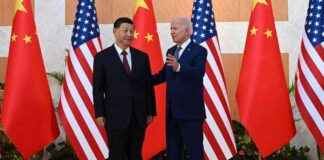As the future of the popular social media platform TikTok hangs in the balance, recent developments in the United States have brought into question the app’s fate. With the passing of the Protecting Americans from Foreign Adversary Controlled Applications Act in the House of Representatives, TikTok’s parent company ByteDance faces the potential of being forced to divest its ownership of the platform within six months to a non-affiliated entity. This move has raised concerns about the app’s ability to continue operating in the U.S. and has sparked discussions about the broader implications for international internet services and relations with China.
The Threat to TikTok
The passing of the bill in the House of Representatives marks a significant moment in the ongoing debate over TikTok’s presence in the U.S. The legislation, which aims to prevent foreign adversaries from exploiting American data through popular apps like TikTok, has garnered bipartisan support and highlights growing concerns about national security risks associated with Chinese-owned tech companies. By requiring ByteDance to sell TikTok to a non-affiliated entity, the bill seeks to mitigate potential threats posed by the app’s data collection practices and its ties to the Chinese Communist Party.
While the bill is not a ban on TikTok, its implications for the app’s future are significant. If the Senate passes the legislation and it becomes law, ByteDance will be forced to navigate a complex process of divestiture and potential sale within a tight timeframe. The challenge lies in finding a suitable buyer that is not subject to the control of foreign adversaries, while also ensuring a smooth transition of ownership that does not disrupt the app’s operations or user experience. The fate of TikTok hinges on the outcome of these negotiations and the willingness of ByteDance to comply with the terms set forth in the bill.
Political Ramifications
The swift passage of the bill in the House of Representatives reflects a shifting attitude towards China in Washington and raises questions about the future of U.S.-China relations in the tech sector. With tensions escalating between the two countries over issues of data security and national sovereignty, the fate of TikTok has become a focal point for broader geopolitical concerns. The decision to target TikTok as a potential threat to national security underscores the growing scrutiny of Chinese-owned tech companies operating in the U.S. and highlights the challenges of balancing economic interests with security considerations.
President Joe Biden’s support for the bill signals a unified front on the issue of TikTok, despite potential pushback from other stakeholders. The former administration under Donald Trump had also raised concerns about TikTok’s ties to China but stopped short of implementing a ban on the app. The differing approaches to addressing the perceived threat of TikTok reflect a broader debate within the U.S. government about the best course of action to protect American interests while maintaining open channels of communication with global partners.
The Future of TikTok
As TikTok’s future hangs in the balance, the app’s fate will ultimately be determined by the outcome of negotiations between ByteDance and potential buyers. The challenge of finding a suitable purchaser within the specified timeframe poses a significant hurdle for the company, as Beijing’s approval and the complex nature of international business transactions could complicate the sale process. The fate of TikTok will not only impact the app’s millions of users but also serve as a litmus test for the broader implications of foreign-owned tech companies operating in the U.S. market.
In conclusion, the future of TikTok remains uncertain as the app navigates a complex web of political, economic, and technological challenges. The passing of the Protecting Americans from Foreign Adversary Controlled Applications Act represents a turning point in the debate over TikTok’s presence in the U.S. and raises significant questions about the app’s ability to continue operating in the face of mounting scrutiny. As ByteDance and potential buyers work towards a resolution, the fate of TikTok will serve as a barometer for the evolving landscape of international internet services and the delicate balance between security and innovation in the digital age.

















